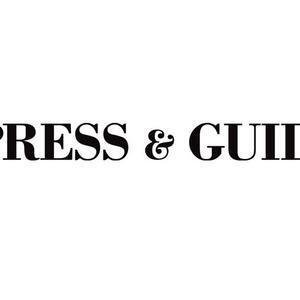The debt ceiling deal cleared its biggest hurdle in the Republican-controlled House Wednesday night, May 31. The deal passed 314-117, with 71 Republicans and 46 Democrats voting against the bill. The Senate now has until Monday, June 5, to sign off on the deal before the dreaded X-date, when the Treasury runs out of funds.
The Senate, which moves slow by design, will need to speed through any objections and amendment proposals over the next few days to avoid default. Multiple senators have come out against the debt deal on the table and have promised to push for changes.
“The thing has to pass as is,” said economist Kevin Hassett, former senior adviser to President Donald Trump. “We’re running against the clock here.”
If the Senate were to pass amendments, it would have to go back to the House before heading to President Joe Biden’s desk.
“Everybody knows it’s gonna pass just like everybody knew it was gonna pass the House yesterday,” Hassett said.
Readying for a victory lap
House Speaker Kevin McCarthy didn’t get the steep spending cuts he initially sought. Biden didn’t get a clean debt ceiling hike he and Democrats pushed for. Still, Hassett said both are winners in the debt deal.
“For President Biden, as he heads into the general, I think Americans are desperate for a candidate that can work well with others that isn’t so extreme, as extreme as perhaps Biden has been in the first couple of years,” Hassett said. “Having a moderate compromise bill that’s supported by Republicans and Democrats will help Biden tell the story that he’s the guy who can work with the other side.”
And although some more conservative members of the Republican Party are calling for McCarthy’s firing as house speaker over the debt deal, Hassett said there are a “whole bunch of wins” in the deal for the GOP, including spending reductions and expanded work requirements for government assistance.
While many Democrats took issue with the expanded work requirements for government assistance programs like SNAP, they conceded to the GOP on the issue in order to pass the deal.
“There’s something that never, ever, ever would have passed a Democratic Congress if you put it as a standalone bill, but by combining it with the debt limit, they were able to get it through,” Hassett said. “That’s really why, when you and I talked about this a while ago, I was saying for sure they should bargain over it because they’re going to get some policy concessions from the Democrats and sure enough, here we are.”
Not all wins for McCarthy
Estimates on spending cuts over the next 10 years range from around $1 trillion to $2 trillion, with the Congressional Budget Office sitting at around $1.5 trillion in deficit cuts. Republicans originally passed a bill that the CBO determined would cut deficits by $4.8 trillion over 10 years.
“The spending reduction is pretty darn small and spending is really out of control,” Hassett said. “And so it’s a step in the right direction, but the Republicans that are voting against it are arguing that McCarthy had a lot more leverage than this and he should have been able to get more spending concessions than he did.”
One particular example is the increased funding earmarked for the IRS. Republicans had vowed to revoke all $80 billion. The debt ceiling deal strips about 25% of it away. Hassett also dismissed the impact of conservatives calling for McCarthy’s job.
“I think most House members understand that in a narrow majority, you need a speaker who can get the best deal possible and McCarthy’s deal is really quite a bit better than even I anticipated a few weeks ago,” he said.




















































